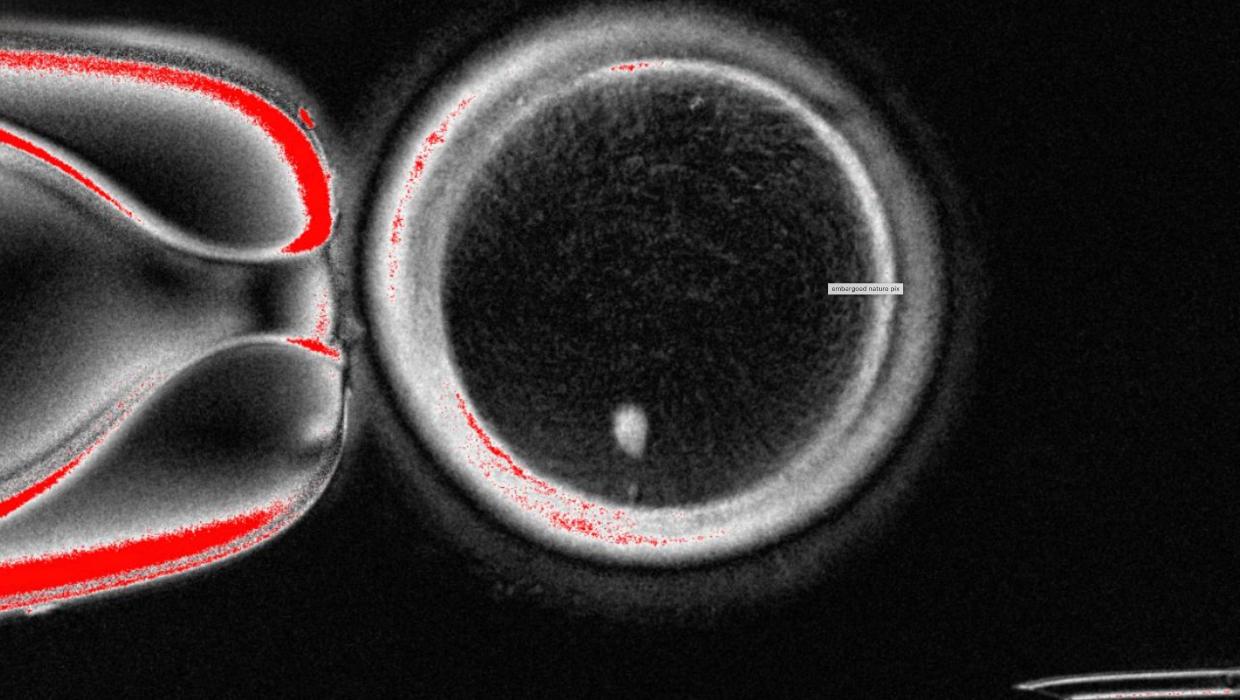Science
US Researchers Create Fertilizable Human Eggs from Skin Cells

A team of US scientists has successfully transformed human skin cells into fertilizable eggs, marking a significant advancement in reproductive science. This breakthrough could play a crucial role in efforts to develop laboratory-grown eggs and sperm, potentially aiding individuals facing fertility challenges.
The research, published in the journal Nature Biotechnology, demonstrates the feasibility of creating viable gametes from ordinary skin cells. By reprogramming these cells, researchers were able to generate oocytes, which are the female reproductive cells necessary for conception. This innovation offers hope for future applications in assisted reproductive technologies.
Significance of the Breakthrough
The implications of this research extend beyond scientific curiosity. For many couples struggling with infertility, the ability to generate eggs and sperm from their own cells could eliminate the reliance on donors. This personalized approach not only enhances the chances of successful conception but may also reduce the emotional and ethical complexities associated with traditional donation methods.
Dr. Shoukhrat Mitalipov, a leading researcher in the study, emphasized the importance of this work. “Our findings pave the way for innovative treatments in reproductive medicine,” he stated. The team’s technique could potentially lead to the creation of gametes that are genetically matched to individuals, which may improve health outcomes for future generations.
Future Directions for Research
While the research represents a remarkable step forward, significant challenges remain. Scientists must further investigate the safety and long-term viability of these lab-grown gametes. Additionally, ethical considerations surrounding the manipulation of human cells will require careful examination as this field advances.
The potential for creating synthetic gametes could transform reproductive options, especially for same-sex couples and individuals with fertility issues. As understanding of this technology expands, discussions will likely arise regarding regulation and the implications of such advancements on societal norms.
This groundbreaking study opens the door to a future where infertility may be addressed through innovative scientific solutions. As research continues, the hope is that lab-grown eggs and sperm could become a reality, offering new possibilities for conception.
The work of these US scientists underscores the power of regenerative medicine and its potential to reshape the landscape of reproductive health. The journey from skin cells to fertilizable eggs is just the beginning of what could be an extraordinary evolution in how we approach fertility and conception.
-

 World3 months ago
World3 months agoTest Your Knowledge: Take the Herald’s Afternoon Quiz Today
-

 Sports3 months ago
Sports3 months agoPM Faces Backlash from Fans During Netball Trophy Ceremony
-

 Lifestyle3 months ago
Lifestyle3 months agoDunedin Designers Win Top Award at Hokonui Fashion Event
-

 Sports3 months ago
Sports3 months agoLiam Lawson Launches New Era for Racing Bulls with Strong Start
-

 Lifestyle3 months ago
Lifestyle3 months agoDisney Fan Reveals Dress Code Tips for Park Visitors
-

 Health3 months ago
Health3 months agoWalking Faster Offers Major Health Benefits for Older Adults
-

 World3 months ago
World3 months agoCoalition Forms to Preserve Māori Wards in Hawke’s Bay
-

 Politics3 months ago
Politics3 months agoScots Rally with Humor and Music to Protest Trump’s Visit
-

 Top Stories3 months ago
Top Stories3 months agoUK and India Finalize Trade Deal to Boost Economic Ties
-

 World3 months ago
World3 months agoHuntly Begins Water Pipe Flushing to Resolve Brown Water Issue
-

 Entertainment3 months ago
Entertainment3 months agoExperience the Excitement of ‘Chief of War’ in Oʻahu
-

 Science3 months ago
Science3 months agoNew Interactive Map Reveals Wairarapa Valley’s Geological Secrets









